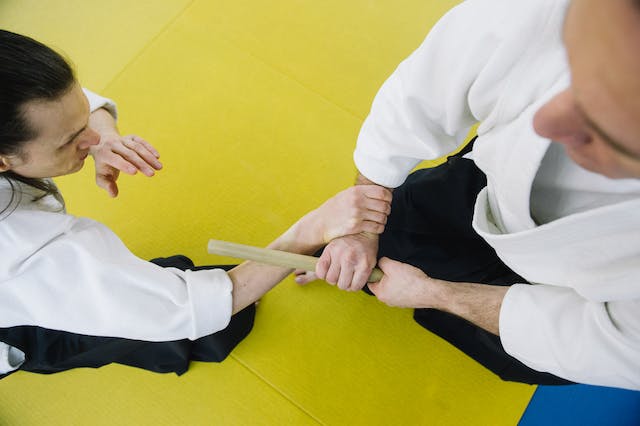The Benefits of Martial Arts Training for Self-Defense

Martial arts provide excellent preparation for self-defense in dangerous situations. Moreover, the physical and mental skills gained through consistent martial arts practice equip individuals to protect themselves and loved ones effectively.
One major benefit of martial arts is physical conditioning. Additionally, martial arts training improves strength, speed, balance, flexibility, and coordination. It also builds muscle, boosts cardiovascular health, and burns calories. Consequently, with consistent practice, martial arts enhance overall physical fitness. As a result, being in good shape gives an advantage in fending off attackers. Furthermore, greater speed, power, agility, and endurance allow landing forceful strikes while avoiding opponents’ blows. Hence, physically fit martial artists can better control altercations and disable threats.
Additionally, martial arts hone fine motor skills. Through repeatedly drilling precise punches, kicks, blocks, grabs, and throws, muscle memory develops. Consequently, with enough training, movements become second nature. Subsequently, martial artists can execute techniques with precision and fluidity. As a result, their strikes land on target, and their blocks come at the right angles to deflect incoming attacks. Above all, clean technique allows them to generate maximum force and prevent injury to themselves. Consequently, technical proficiency gives martial artists an edge in chaotic brawls.
Moreover, martial arts build mental fortitude. Firstly, martial arts training cultivates discipline, focus, situational awareness, and bravery. Secondly, studying a martial art requires dedication to regular practice and progression through ranks. Consequently, this instills mental toughness, determination, and grit. Moreover, martial artists learn to block out distraction and intensely concentrate on the task at hand. Additionally, their situational awareness improves as they repeatedly spar against partners. As a result, they become accustomed to anticipating and reacting to various attacks. Furthermore, martial artists gain courage facing larger, stronger opponents during full-contact sparring. Ultimately, this conquers fear and develops the willingness to intervene and fight if necessary. Hence, with sharpened focus, alertness, and bravery, martial artists obtain a psychological advantage in confrontations.
Furthermore, martial arts provide knowledge of effective self-defense techniques. Specifically, training covers stances and footwork to manage distance, blocks to avoid damage, grabs and throws to control opponents, and strikes to injure vulnerable anatomical targets. Consequently, martial artists learn how to assess threats, create opportunities to strike, exploit weaknesses, and maximize damage through joint manipulations and pressure points. Additionally, they study tactics tailored for common attack scenarios like haymakers, tackles, chokes, weapon assaults, and multiple assailants. Consequently, this tactical knowledge of disabling techniques equips martial artists to competently defend themselves.
In summary, regular martial arts practice offers immense benefits for personal safety. Consequently, it builds physical fitness, fine motor skills, mental fortitude, and technical knowledge needed to effectively handle violence. Additionally, martial arts training develops well-rounded competence in self-protection. Above all, the conditioning, discipline, situational awareness, and fighting skills gained through martial arts can save lives in dangerous encounters. Furthermore, those able to protect themselves need not live in fear of violence. Ultimately, martial arts transform victims into victors, empowering people to fight back against aggressors when no other options remain. Consequently, for these reasons, martial arts merit consideration as invaluable preparation for self-defense.




